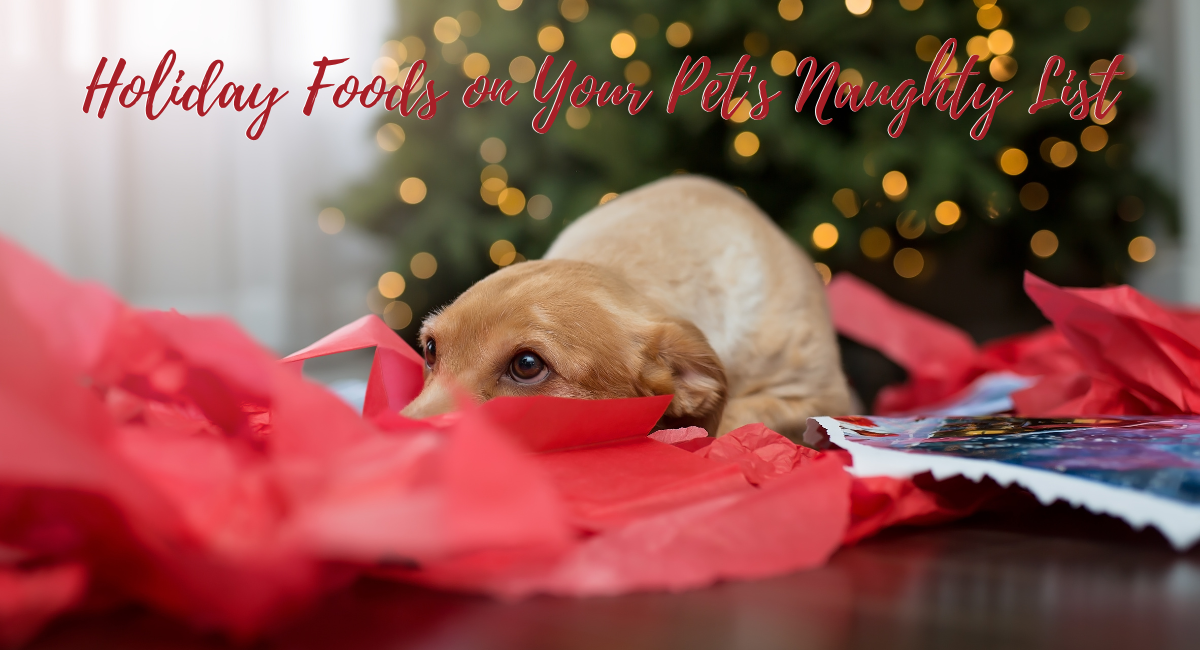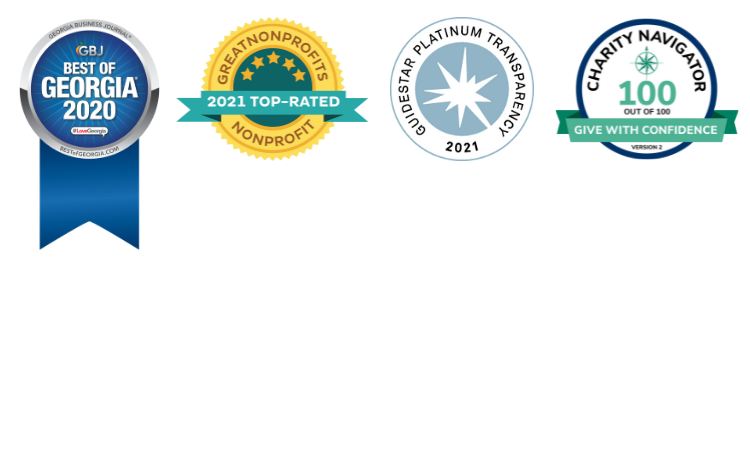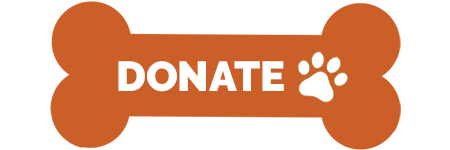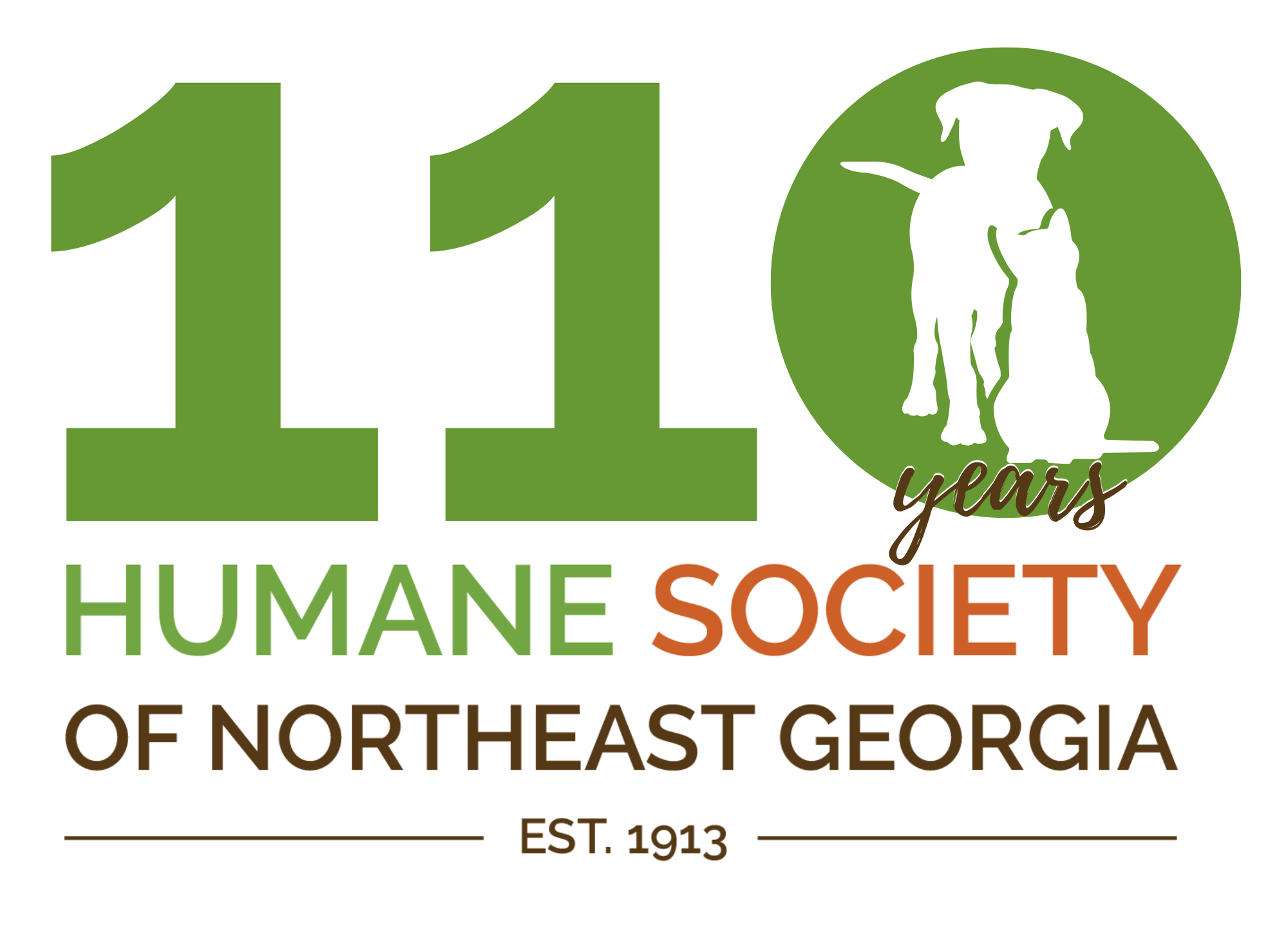Holiday Foods on Your Pet’s Naughty List

When the holiday season comes around, we anticipate the food that we get to enjoy with our loved ones. You might have dinner guests with food allergies you’ll be adjusting to when meal planning. The same care should be taken in what foods we share with our furry loved ones. Here’s a list of holiday foods you should never feed your pets.
Cooked Bones
We’re all familiar with the phrase “Give a dog a bone” but there should be a disclaimer following it. If you plan on having ham, turkey, duck, or any other kind of meat, avoid giving your dog the bones. Cooked bones lose their nutrients so there’s no real benefit to your dog in chewing them. They’re also especially brittle and can splinter causing harm to their gums. If ingested, it can damage their throat and intestines. So, instead, opt for raw bones as they’re safer for your dogs.
Fatty Meat
Fat trimmings and seasoned meat are not safe for your pet as they are high in salt and well, fat. This combination can inflame the pancreas, causing pancreatitis. It’s best to give your pet unseasoned white meat if you want to indulge them in a protein-rich treat.
Nuts
Cats aren’t known to eat nuts but it’s not uncommon to give dogs peanut butter once in a while. Plain and shelled peanuts are safe. But the majority of nuts are high in fat and oil which can cause not only an upset stomach but also pancreatitis. Here’s a list of nuts that are especially unsafe for pets.
● Walnuts
● Almonds
● Pecans
● Macadamia
● Cashews
Specific Fruits
Raisins, including grapes, contain tartaric acid. If consumed, your pet could experience vomiting, diarrhea, and kidney failure. It’s also best for your pet to avoid citrus fruits. The citric acid in oranges, grapefruits, and lemons can disrupt their digestive system. In more severe cases, fruit rinds can cause a blockage that requires surgery. Plain pumpkins, apples, pears, and cranberries are safe for consumption. (They’re also a great source of fiber!) A note on pumpkins, they can be unappetizing raw so pop them in the oven for a bit before treating your pet. Additionally, if you choose to serve canned pumpkin, make sure it’s unseasoned. Avoid pumpkin pie filling as it’s seasoned with spices that are harmful to your furry pal.
Specific Vegetables
Onions, shallots, leeks, and garlic are toxic to dogs and cats. They are especially dangerous if consumed in large amounts. These plants are high in antioxidants which are beneficial to our health. But, this property is unsafe for our pets and can result in kidney damage. Other vegetables that are best to avoid are spinach, asparagus, and mushrooms. Let’s get into why. Spinach is generally safe to give your pet. But, it contains oxalic acid which if consumed in high amounts can lead to kidney damage. Asparagus doesn’t have many nutrients that are helpful for your pet once it’s cooked. Raw asparagus is too tough for them to eat and could be a choking hazard. Wild mushrooms are poisonous to dogs and cats. It’s best to avoid them altogether to be on the safe side. Broccoli, brussels sprouts, green beans, and celery are all safe for Fido and Kitty to eat. (When unseasoned!) These vegetables pack a nutritious punch that can be a great addition to your pet’s diet.
Specific Herbs and Spices
Herbs and spices make our food delicious, but some can be fatal to our pet’s food. These are the herbs and spices that you should never feed your pet.
● Nutmeg
● Chives
● Rhubarb
● Allspice
● Cloves
● Bay Leaves
Sugary, Alcoholic, and Caffeinated Products Products containing sugar, alcohol, and caffeine are big no’s. Vanilla extract, cocoa powder, and even sugar replacements put your pet’s health at risk. Be aware of the ingredients in products and keep a keen eye out for xylitol. This ingredient is safe for humans but it can drop your pet’s blood sugar with causes seizures and brain damage.
Raw Dough
If you plan on baking any pies, keep raw dough out of view from your pet’s hungry eyes. The unbaked dough contains ethanol and carbon dioxide from the fermenting process. And when ingested, the dough will rise in the stomach resulting in bloating. Furthermore, disorientation and alcohol poisoning can occur.
As pet owners, we do all we can to ensure our pet’s safety. The reality is that accidents happen and it’s important to know how to take action when they do happen. If your pet does eat something it shouldn’t, call your local emergency animal hospital. Alternatively, you can contact ASPCA Poison Control or Pet Poison Helpline.
Another important thing to remember is to stay calm. While the situation may be stressful, try to navigate the emergency as best you can. Log their symptoms and identify the potential toxin. Don’t forget to gather their medical records. Doing this will prepare you to give the care providers as much information as possible.
As a disclaimer, this is a list that applies to dogs and cats. Make sure to do your research on food safety tips for pets not represented in this post.
Brian Thomas is a contributor to Enlightened Digital. He enjoys reading and researching tech and business. When he’s not looking into the latest trends, you can find him out cycling.
Give with Confidence
At HSNEGA, we want to remember the amazing rescues that come to stay with us. All of the animals pictured on this site have been with us at some point. Some have already found their forever homes, but some may still be here at HSNEGA! The Humane Society of Northeast Georgia is a 501(c) (3) non-profit organization (Federal Tax ID #58-0678817) and has received top recognition from the following charity rating organizations:


